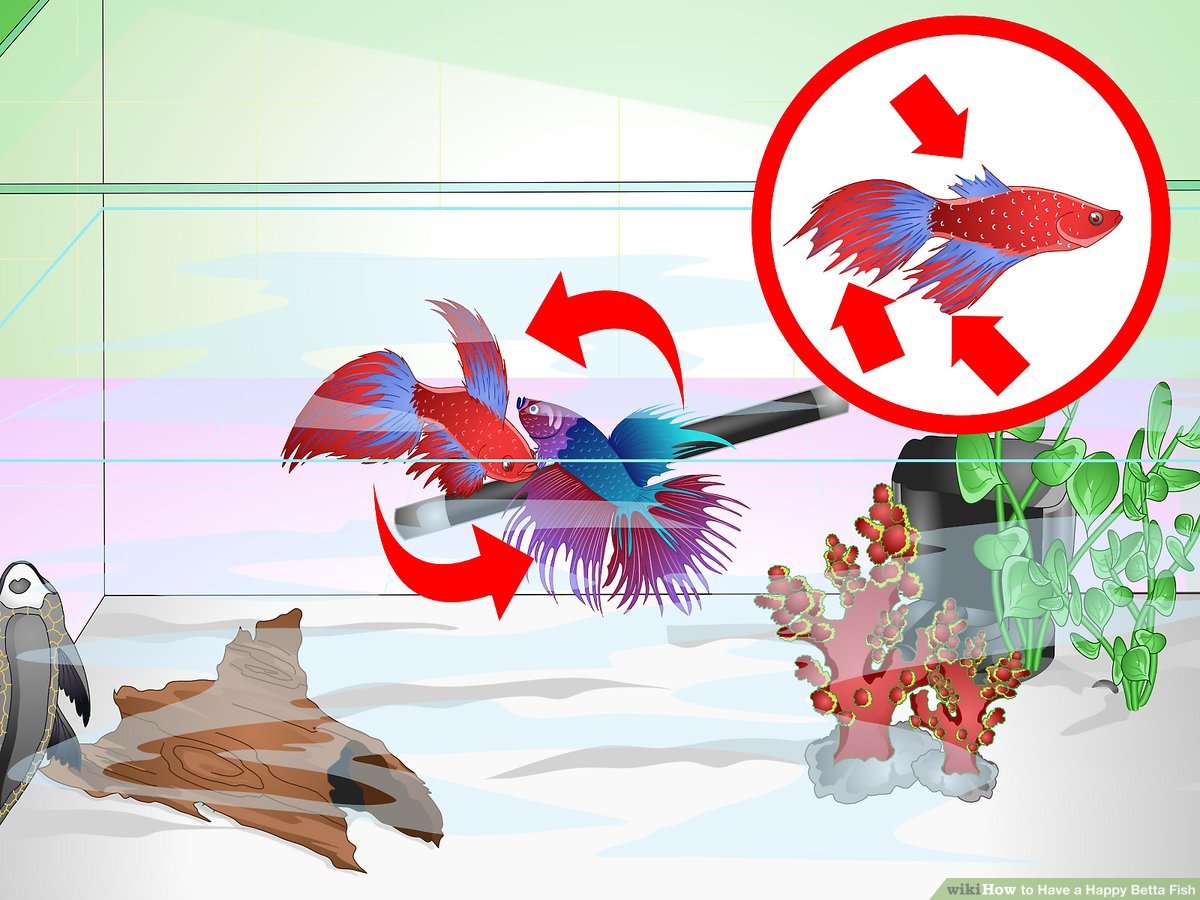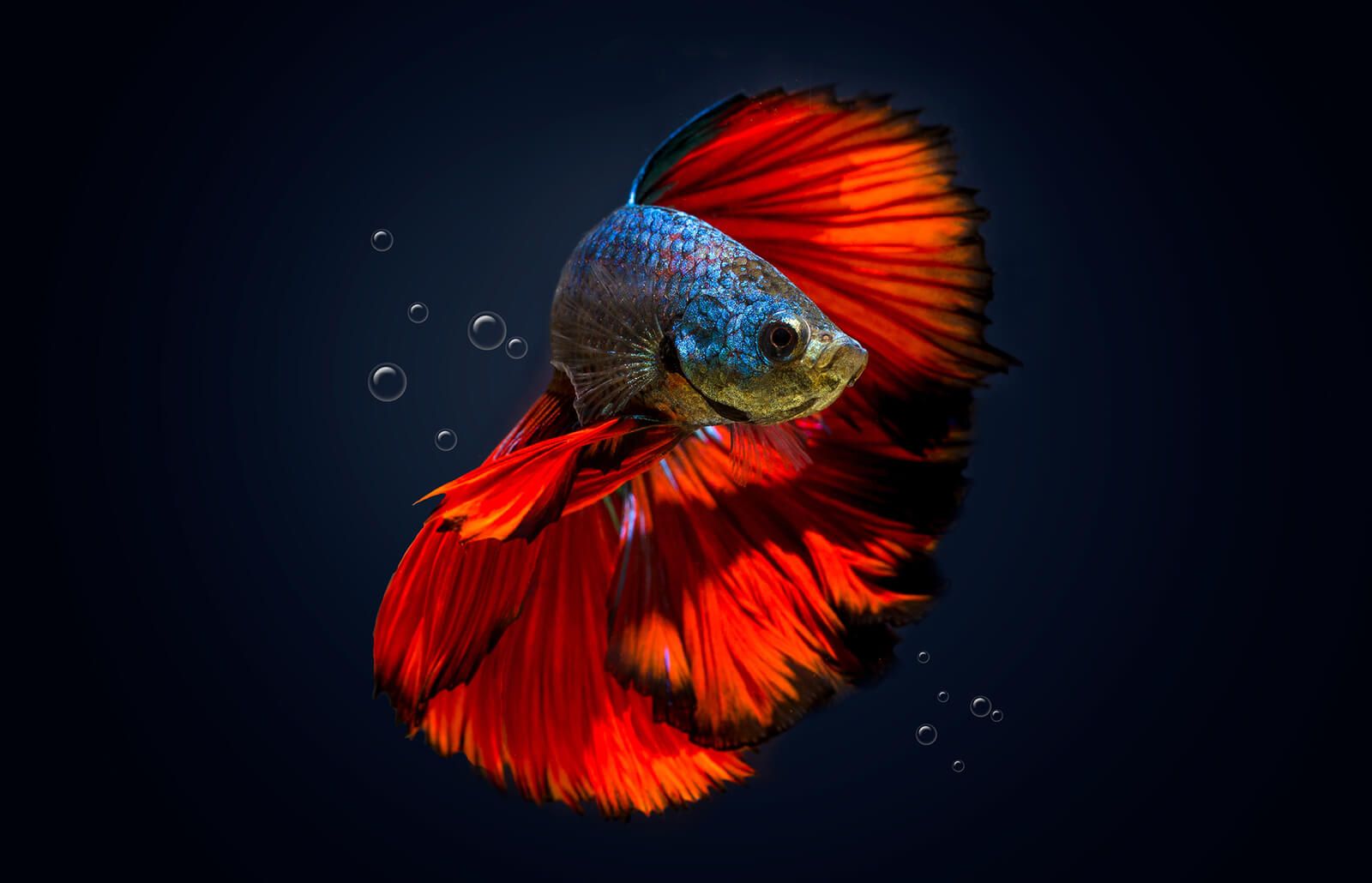Betta fish are known for their vibrant colors, long fins, and unique personalities. But as a pet owner, how do you know if your betta fish is happy? Unlike dogs or cats, betta fish cannot wag their tails or purr to show their emotions. However, there are several signs you can look out for to tell if your betta fish is content and happy in its environment.
In this article, we will explore different ways to tell if your betta fish is happy. From observing its behavior to monitoring its physical appearance, we will provide you with the knowledge you need to ensure your betta fish is thriving in its tank. So, let’s dive in and learn how to make sure your betta fish is living its best life!
- Observe their body language. Happy betta fish will have their fins fully extended and may even dance around their tank.
- Check their appetite. If your betta is eating regularly and actively searching for food, it’s a good sign they’re happy and healthy.
- Look for bright colors. A healthy and happy betta will display vibrant colors.
- Notice their activity level. If your betta is swimming around their tank and exploring their environment, it’s a good indication that they’re happy.

How to Tell if a Betta Fish is Happy?
Betta fish, also known as Siamese fighting fish, are popular aquarium pets known for their vibrant colors and flowing fins. As a responsible pet owner, it is important to ensure that your betta fish is happy and healthy. But how do you tell if your betta fish is happy? In this article, we will look at some signs that indicate a happy betta fish.
1. Active and Energetic
Betta fish are naturally active and curious creatures. A happy betta fish will be constantly on the move, exploring its environment and showing off its fins. A lethargic or inactive betta fish, on the other hand, may be a sign of stress, illness, or boredom.
You can encourage your betta fish to be active by providing a stimulating environment with plenty of hiding places, plants, and decorations. Adding a filter and heater to your tank can also help maintain a healthy and comfortable environment for your fish.
2. Healthy Appearance
A happy betta fish should have a healthy and vibrant appearance. Look for bright colors and smooth, flowing fins. Any signs of discoloration, frayed fins, or other physical abnormalities may indicate a health issue or poor water quality.
Maintaining a clean and well-maintained aquarium is essential for your betta fish’s health and happiness. Regular water changes, proper filtration, and a balanced diet can help keep your betta fish healthy and beautiful.
3. Playful Behavior
Betta fish are known for their playful behavior, especially when interacting with their owners. A happy betta fish may follow your finger or playfully nibble on your hand during feeding time. They may also flare their fins or perform other acrobatic displays to show off their strength and agility.
To encourage playful behavior, try interacting with your betta fish regularly and providing a variety of toys and decorations in their environment. Just be sure to avoid any sharp or pointed objects that could harm your fish.
4. Eating Habits
A happy betta fish will have a healthy appetite and enjoy eating a varied diet. Betta fish are carnivores and require a diet rich in protein, such as bloodworms, brine shrimp, or high-quality betta pellets.
If your betta fish is not eating or appears disinterested in food, it may be a sign of stress or illness. In this case, it is important to consult with a veterinarian or aquarium specialist to determine the cause and appropriate treatment.
5. Healthy Fins and Scales
Fins and scales are important indicators of a betta fish’s overall health and happiness. A happy betta fish will have smooth, flowing fins and shiny, healthy scales. Any signs of fin rot, tail biting, or other issues may be a sign of poor water quality, stress, or illness.
Maintaining a clean and well-maintained aquarium with proper filtration, water changes, and a balanced diet can help prevent fin and scale issues and promote your betta fish’s overall health and happiness.
6. Comfortable Environment
A happy betta fish will thrive in a comfortable and stimulating environment. This includes a properly sized aquarium with plenty of hiding places, plants, and decorations. The water temperature should be maintained between 76-82°F, and the pH level should be between 6.5-7.5.
Adding a filter and heater to your aquarium can help maintain a stable and healthy environment for your betta fish. It is also important to avoid overcrowding and ensure that your fish has plenty of space to swim and explore.
7. Social Behavior
While betta fish are known for their aggressive behavior towards other fish, they can still exhibit social behavior towards their owners. A happy betta fish may approach you when you approach the tank, follow your movements, or even flare their fins in greeting.
To encourage social behavior, try interacting with your betta fish regularly and providing a variety of toys and decorations in their environment. Just be sure to avoid any sharp or pointed objects that could harm your fish.
8. Clean and Clear Water
Clean and clear water is essential for a happy and healthy betta fish. Regular water changes, proper filtration, and a balanced diet can help maintain water quality and prevent issues such as ammonia buildup, algae growth, and other water quality issues.
It is important to monitor water quality regularly and take appropriate steps to maintain a clean and healthy environment for your betta fish. This includes testing water parameters regularly, performing regular water changes, and keeping your aquarium clean and well-maintained.
9. Tail Wagging
One unique sign that your betta fish is happy is tail wagging. Betta fish can wag their tails when they are excited or happy, similar to a dog wagging its tail. This behavior is a sign that your betta fish is comfortable and content in its environment.
To encourage tail wagging behavior, try interacting with your betta fish regularly and providing a stimulating environment with plenty of hiding places, plants, and decorations.
10. Vocalization
While betta fish are not known for their vocalizations, they can still make noises when they are happy or excited. This may include clicking or popping sounds, or even a soft purring sound.
To encourage vocalization, try interacting with your betta fish regularly and providing a stimulating environment with plenty of toys and decorations. Just be sure to avoid any sharp or pointed objects that could harm your fish.
In conclusion, keeping your betta fish happy and healthy requires a combination of proper care, attention, and a stimulating environment. By following these tips and monitoring your betta fish’s behavior and appearance, you can ensure that your fish is happy and thriving in its aquarium home.
Frequently Asked Questions
In this section, we answer some of the most commonly asked questions about how to tell if a Betta fish is happy.
What Are the Signs of a Happy Betta Fish?
A happy Betta fish is an active, healthy, and vibrant fish. You can tell if your Betta fish is happy by observing its behavior. A happy Betta fish will be active and will swim around its tank. It will also have a healthy appetite and will eagerly accept food when offered. Another sign of a happy Betta fish is bright and vibrant colors. If your Betta fish is displaying these signs, then it is likely a happy fish.
It is important to note that every Betta fish has its own personality, and some may be more active or outgoing than others. So, it is essential to observe your Betta fish’s behavior and habits to get a good idea of what is normal for them.
What Are the Signs of an Unhappy Betta Fish?
An unhappy Betta fish will display several signs that something is wrong. One of the most noticeable signs of an unhappy Betta fish is lethargy. If your Betta fish is not swimming around its tank and seems to be spending most of its time hiding, then it may be unhappy. Another sign of an unhappy Betta fish is a loss of appetite. If your Betta fish is not eating, it may be a sign that something is wrong.
Other signs of an unhappy Betta fish include fin rot, loss of color, and a lack of interest in its surroundings. If you notice any of these signs, it is important to take action to determine the cause of your Betta fish’s unhappiness and address the problem as soon as possible.
How Can You Make Your Betta Fish Happy?
There are several things you can do to make your Betta fish happy. One of the most important things you can do is to provide your Betta fish with a suitable habitat. This means ensuring that your Betta fish has a tank that is the right size, has a filter, and is heated to the appropriate temperature. You should also provide your Betta fish with plenty of places to hide and explore.
Another way to make your Betta fish happy is to provide it with a balanced and nutritious diet. Betta fish are carnivorous and require a diet that is high in protein. You should also avoid overfeeding your Betta fish, as this can lead to health problems.
Can Betta Fish Recognize Their Owners?
While Betta fish do not have the same level of intelligence as dogs or cats, they can recognize their owners. Betta fish have a good memory and can remember familiar faces and objects. If you spend time interacting with your Betta fish, it will become familiar with your presence and may even swim up to the side of the tank to greet you.
However, it is important to note that Betta fish are solitary creatures and do not require interaction with their owners to be happy. So, while they may recognize you, they do not need your attention to thrive.
Do Betta Fish Get Lonely?
Betta fish are solitary creatures and do not require companionship to be happy. In fact, Betta fish are territorial and may become aggressive towards other fish if they are housed together. So, while Betta fish do not get lonely, they do require a suitable habitat and plenty of stimulation to keep them happy and healthy.
You can provide your Betta fish with stimulation by adding plants, decorations, and hiding places to their tank. You can also try changing the layout of their tank from time to time to keep them interested and engaged.

10 Signs of Happy Betta fish
In conclusion, understanding the signs of a happy betta fish is essential for their overall well-being. By observing their behavior, appetite, and living conditions, you can ensure that your pet is thriving in their environment. Remember to provide them with a spacious tank, clean water, and a varied diet to keep them healthy and content.
Additionally, spending time with your betta fish and providing them with enrichment activities can also contribute to their happiness. Consider adding live plants, hiding places, and toys to their tank, and interact with them regularly to keep them engaged and stimulated.
Overall, taking care of a betta fish requires patience, dedication, and a willingness to learn. By educating yourself on their needs and behaviors, you can provide them with the best possible care and ensure that they live a long and happy life.
